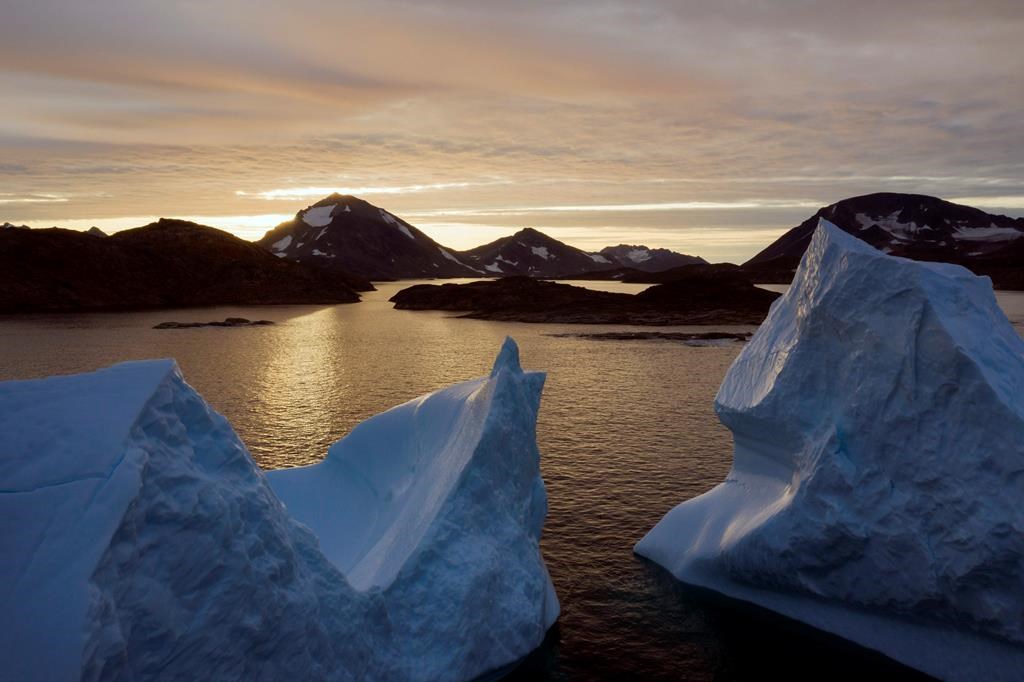My older sister loves to remind me that for most of 1990 through 1992, I wore a turtle shell backpack and a red bandana anywhere I could. My mother would regularly have to peel the backpack and bandana off of me while forcing me into socially acceptable attire.

I’m telling you this not just so I can sneak into this column that I still have an awesome ninja kick that I can showcase on demand, but that I think part of the disconnect my generation feels with boomers and even older Gen-Xers on issues of climate change can all be traced back to the importance that four wily turtles played in our lives.
I’m only being semi-facetious here, as the episodes of the Ninja Turtles regularly featured environmental PSA-type segments, called Turtle Tips.
But aside from humanoid reptiles advocating for the planet, the late ’80s and early ’90s were a time when politicians of all stripes recognized the need for climate action as well, and there is no better example of this than the depletion of the ozone layer.
COMMENTARY: Climate change discussion needs to get back to science, Danielle Smith says
Much like climate change, the ozone layer was being destroyed by an anthropogenic increase of compounds in the atmosphere, and similar to climate change, these ozone-depleting substances also existed naturally in the atmosphere. It was the man-made increase of these compounds that upset the natural balance of things.
Yet because of a major cooperative international effort, ozone-depleting substances have decreased dramatically.
This was only possible because we had an honest conversation about what was causing the depletion of the ozone layer and how we were going to fight it. While acute regional non-compliance remains an issue, at least we don’t regularly see opinion pieces or right-leaning politicians saying chlorofluorocarbons have no discernible impact on the ozone layer.
And yet it seems as though there is still a sizeable contingent of people in Canada and around the world who either claim not to “believe” in anthropogenic climate change or who are fine to do nothing about it.
WATCH: Climate change coverage on Globalnews.ca
The way climate change is discussed in the media is largely to blame for this. We have known for quite some time now that at least in Canada, our media has not been portraying the issue of climate change accurately. Research from the University of British Columbia and Memorial University confirmed that both national newspapers — the National Post and the Globe and Mail — have not provided their readers with an accurate portrayal of climate change issues in Canada.
Part of the problem is that when we talk about climate change, we leave out an entire, and rather dire, aspect of the issue — the fact that climate change undermines our collective global security.
Climate change is a threat multiplier, which means that it exacerbates threats that already exist, including issues of security. This isn’t just some abstract academic concept, either, emanating from ivory towers, but one that comes directly from military and national security experts, including the Pentagon and Canada’s Department of National Defence.
- Canadian man dies during Texas Ironman event. His widow wants answers as to why
- On the ‘frontline’: Toronto-area residents hiring security firms to fight auto theft
- Honda’s $15B Ontario EV plant marks ‘historic day,’ Trudeau says
- Canadians more likely to eat food past best-before date. What are the risks?
A policy document titled “Strong, Secure, Engaged: Canada’s Defence Policy” makes it explicitly clear that we can no longer afford to ignore the threat of climate change.
Back in 2014, the Pentagon released a report entitled the “Climate Change Adaptation Roadmap” that laid out in very clear terms the negative impacts climate change would have on national security, asserting that the effects of climate change posed “immediate risks to U.S. national security.”
A year later, in 2015, the Pentagon released another report reiterating the dangers of climate change, stating it was “an urgent and growing threat” which not only contributed to the increase in natural disasters, but also “refugee flows, and conflicts over basic resources such as food and water.”
You think the current global migration crisis is bad? Whatever we are seeing now will pale in comparison when entire areas of the world will become completely unlivable due to climate change. And I’m not sure Canada has any idea what to do when other countries start to realize just how much fresh water we have, as the rest of the world runs out of theirs.
COMMENTARY: How much are we willing to sacrifice to fight climate change?
There are no two sides to the issue of climate change. It is real. It is happening. Its effects are already being felt, and it’s only going to get worse.
If we can’t count on politicians and the media to portray the issue accurately, maybe we need to bring back our heroes in a half-shell to remind us that climate change will impact every aspect of our lives — even our security.
Supriya Dwivedi is co-host of The Morning Show on Global News Radio 640 Toronto and a columnist for Global News.












Comments